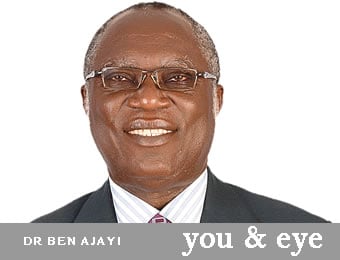I informed her that she required cataract surgery in one eye. I didn’t think she could afford the cost of surgery in a private hospital so I offered her the choice of referral to either a mission or a government hospital.
“Doctor, I am not going anywhere except you cannot do it for me here,” she said. “You cannot afford our charges,” I replied. She was obstinate. “I have asked around how much you charge for the surgery and I have calculated the overall cost. It is overall cheaper for me to have the surgery here in your hospital,” she said. She must be out of her mind, I thought – a private hospital cheaper than a government hospital!
She was an extraordinary woman. I listened with rapt attention as she gave a faultless analysis of the costs involved. “I have already saved about five days’ wages by seeing you at just one visit. To see a doctor in a government hospital may take me three to five visits. Then I would be given an appointment for surgery which may be postponed several times owing to various problems.
“Every day I am out of work, I am losing money as a daily paid worker. I have made arrangements to borrow money from my cooperative society and I already know the number of days I have to work to pay it back.”
What an amazing practical economist! She did not only think about the actual cost of consultations and surgery, she also calculated the loss of income due to absence from work! She demonstrated a mastery of economics often ignored by many literate and “educated” people.
Now let me tell you the story of Jasco, the carpenter. He had a red and painful left eye. He purchased some eye drops from a local chemist. After using the drops for some days, the pain reduced. But to his dismay, his vision was impaired sufficiently to prevent him from doing his work. This compelled him to consult an ophthalmologist.
I found he had a uveitis (an inflammation of the middle coat of the eye) and because of the delay and inappropriate treatment, his pupil (the opening through which light passes into the eye) had stuck to the lens behind and was almost obliterated. This was responsible for the visual impairment.
Unknown to him, he also had advanced glaucoma in his right eye. He had suspected that something was wrong with this eye about four years before, but because he was seeing perfectly and there was no pain, he merely bought some eye drops from the roadside hawker. Now it was obvious that he had been seeing with his left eye only for quite some time. Now that this is impaired he was really in a big trouble.
Jasco could not do his work. He was sad and agitated. “You have to be patient,” I counselled. “We have to control the inflammation first; wait a couple of months for everything to settle down, then deal with the cataract which has now developed.” “Doctor, you don’t mean that I will be away from work for the next two months? How will I take care of my wife and children?” Jasco lamented. “You must be prepared to be away from work for at least four months, not three! I wished I could help make you see better with your right eye. Unfortunately, you’ve lost that without a fight!”
I thought about my illiterate “professor” of economics. How would she have conveyed the message to Jasco in simple economic terms? If Jasco had seen the ophthalmologist four years ago, he would have preserved his right eye. He probably would have lost one or two days’ wages for the visit; spent three days’ wage a month to buy anti-glaucoma drugs. If he had seen the doctor as soon as his recent problem commenced, he would have been absent from work for a maximum of four days and another two day’s wage would have paid for the medications.
Now, Jasco has to be away from work for at least four months. If at the end he goes blind, he and his family may become an additional burden for his extended family or may decide to join the roadside beggars’ club.






